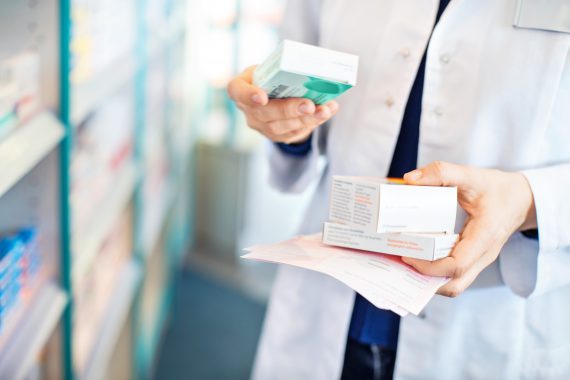Regular shortages of life-saving medicines have become the ‘new normal’ in the UK, according to a report from the Nuffield Trust, which concludes Brexit has made the problem harder to tackle.
In particular, the past two years has seen constant shortages with frequent disruption now commonplace and the NHS having to spend hundreds of millions of pounds trying to mitigate the problem.
Over the past 12 months, Pulse has reported shortages of medicines for diabetes, ADHD, epilepsy, menopause and scabies, as well as antibiotics.
As part of efforts to mitigate the impact, GPs have been asked to proactively contact some patients to discuss switching to an alternative – including those with type 2 diabetes taking glucagon like peptide-1 receptor agonists.
In January, the Government announced it would be setting up an online portal to allow importers of essential goods – including medicines and healthcare supplies – to report disruption affecting their supplies.
But the Nuffield Trust report, funded by the Health Foundation, concluded that while medicines supply problems are a global issue, the UK risks being left in the cold outside EU efforts to tackle shortages.
Price concessions – where the Government has had to provide higher reimbursement because of medicines shortages – have shot up since 2016 from rarely more than 20 a month to a peak of 199 in 2022, with levels remaining high ever since.
It has meant an excess cost through price concessions of £220m in the year up to September 2023, the report said.
There are also now double the number of notifications by drugs companies warning of impending shortages than there were three years ago rising to 1,634 last year.
The report which looked at issues caused by Brexit more widely also found the UK has been slower to approve new drugs than the EU. Of drugs authorised in the year to December 2023, 56 drugs authorised in Europe were approved later in the UK and eight have not been approved. The process was faster in the UK for four drugs, it said.
While Brexit was not the cause of recent increases in drug shortages – an issue that countries around the world are grappling with – it is likely to have significantly weakened the UK’s ability to respond, the report concluded.
This is because it has isolated the UK from European supply chains, authorisations and collective efforts to respond to shortages, including initiatives like the Critical Medicines Alliance where member states have collaborated to reduce the impact of shortages.
The report, done in collaboration with a group of academics, also noted that Brexit has forced the NHS to rely on ethically dubious sources of migration to bolster its workforce, with recruitment from ‘red list’ countries rising by almost a third in one year.
Nuffield Trust Brexit programme lead, Mark Dayan said: ‘The rise in shortages of vital medicines from rare to commonplace has been a shocking development that few would have expected a decade ago.
‘More and more patients across the UK are experiencing a pharmacist telling them that their medication is not available, it may not be available soon, and it may not be available anywhere nearby. This is also creating a great deal of extra work for both GPs and pharmacists.’
He added that many of the problems are global and relate to fragile chains of imports from Asia, ‘squeezed by Covid-19 shutdowns, inflation and global instability’.
‘Officials in the UK have put in place a much more sophisticated system to monitor and respond, and used extra payments to try to keep products flowing. But exiting the EU has left the UK with several additional problems – products no longer flow as smoothly across the borders with the EU, and in the long term our struggles to approve as many medicines might mean we have fewer alternatives available.’
Professor Tamara Hervey, of the City Law School, added: ‘There is nothing inevitable about this “new normal” where Great Britain is isolated in efforts to manage fragilities in global supply of the products and people we need to run the NHS. It is the consequence of policy choices and those could be different.’
A spokesperson for the Department of Health and Social Care said most drugs remained available and that there were various reasons for increases in concessionary prices which could not be linked to shortages.
‘Our priority is to ensure patients continue to get the treatments they need. There are around 14,000 licensed medicines and the overwhelming majority are in good supply.’
Pulse October survey
Take our July 2025 survey to potentially win £1.000 worth of tokens












